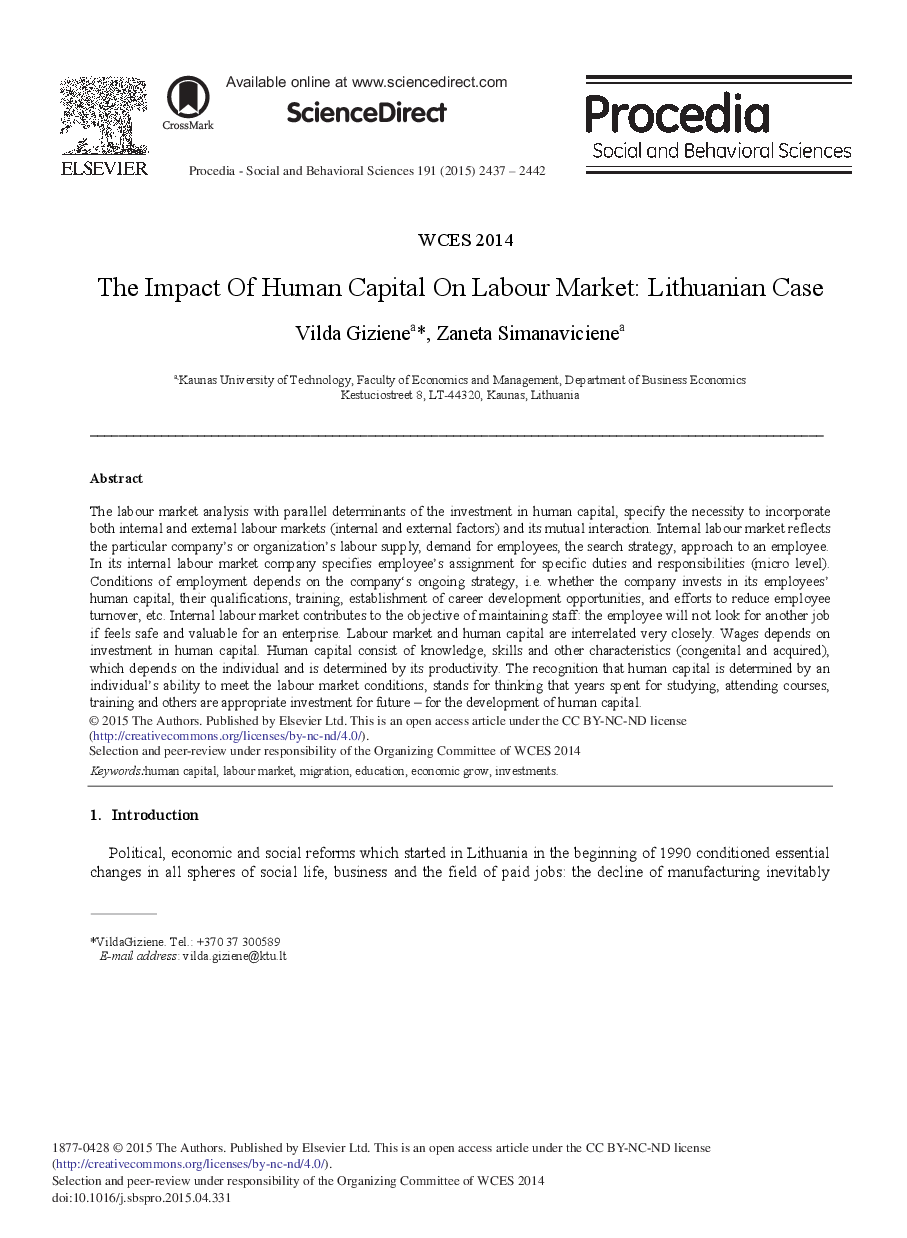ترجمه فارسی عنوان مقاله
تاثیر سرمایه انسانی در بازار کار: مورد لیتوانیایی
عنوان انگلیسی
The Impact of Human Capital on Labour Market: Lithuanian Case ☆
| کد مقاله | سال انتشار | تعداد صفحات مقاله انگلیسی |
|---|---|---|
| 40693 | 2015 | 6 صفحه PDF |
منبع

Publisher : Elsevier - Science Direct (الزویر - ساینس دایرکت)
Journal : Procedia - Social and Behavioral Sciences, Volume 191, 2 June 2015, Pages 2437–2442
ترجمه کلمات کلیدی
سرمایه انسانی - بازار کار - مهاجرت - تحصیلات - رشد اقتصادی - سرمایه گذاری -
کلمات کلیدی انگلیسی
human capital; labour market; migration; education; economic grow; investments.

